Ford Focus Turnier vs VW T-Cross - Differences and prices compared
Compare performance (280 HP vs 150 HP), boot space and price (28500 £ vs 21400 £ ) at a glance. Find out which car is the better choice for you – Ford Focus Turnier or VW T-Cross?
Costs and Efficiency:
Price and efficiency are often the first things buyers look at. Here it becomes clear which model has the long-term edge – whether at the pump, the plug, or in purchase price.
VW T-Cross has a distinct advantage in terms of price – it starts at 21400 £ , while the Ford Focus Turnier costs 28500 £ . That’s a price difference of around 7148 £.
Fuel consumption also shows a difference: Ford Focus Turnier manages with 5 L and is therefore slight more efficient than the VW T-Cross with 5.40 L. The difference is about 0.40 L per 100 km.
Engine and Performance:
Power, torque and acceleration are the classic benchmarks for car enthusiasts – and here, some clear differences start to show.
When it comes to engine power, the Ford Focus Turnier has a significantly edge – offering 280 HP compared to 150 HP. That’s roughly 130 HP more horsepower.
In acceleration from 0 to 100 km/h, the Ford Focus Turnier is decisively quicker – completing the sprint in 5.80 s, while the VW T-Cross takes 8.40 s. That’s about 2.60 s faster.
There’s also a difference in torque: Ford Focus Turnier pulls clearly stronger with 420 Nm compared to 250 Nm. That’s about 170 Nm difference.
Space and Everyday Use:
Beyond pure performance, interior space and usability matter most in daily life. This is where you see which car is more practical and versatile.
Both vehicles offer seating for 5 people.
In curb weight, VW T-Cross is to a small extent lighter – 1267 kg compared to 1413 kg. The difference is around 146 kg.
In terms of boot space, the Ford Focus Turnier offers noticeable more room – 635 L compared to 455 L. That’s a difference of about 180 L.
When it comes to payload, Ford Focus Turnier slightly takes the win – 557 kg compared to 480 kg. That’s a difference of about 77 kg.
Who wins the race in the data check?
The Ford Focus Turnier is decisively ahead in the objective data comparison.
This result only shows which model scores more points on paper – not which of the two cars feels right for you.
Costs and Consumption
View detailed analysis
Engine and Performance
View detailed analysis
Dimensions and Body
View detailed analysis
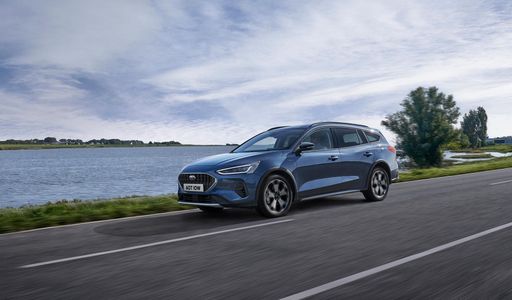
Ford Focus Turnier
Ford Focus Turnier
The Ford Focus Estate packs practical, family-friendly space into a compact, poised package that feels sharper and more grown-up than its price suggests. It steers with tidy composure, offers sensible interior flexibility, and is perfect for buyers who want everyday usability without turning into a moving van.
details
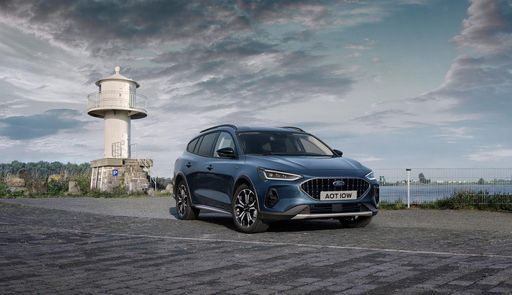
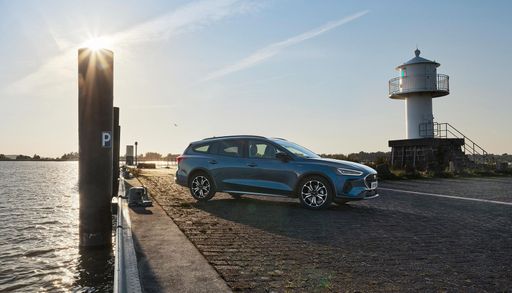
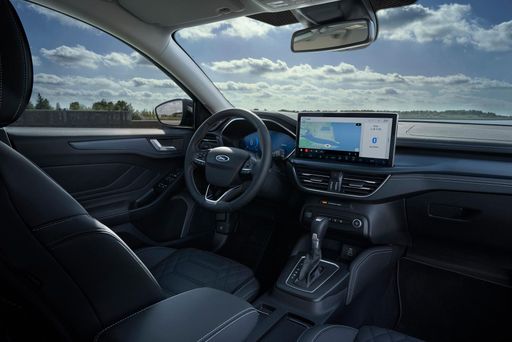
VW T-Cross
The VW T-Cross turns everyday practicality into a style statement, offering a roomy-feeling cabin, clever storage and playful design that suits town life and family duties alike. On the road it's composed and relaxed, rewarding buyers who want the raised seating and confident presence of an SUV without the weighty compromises.
details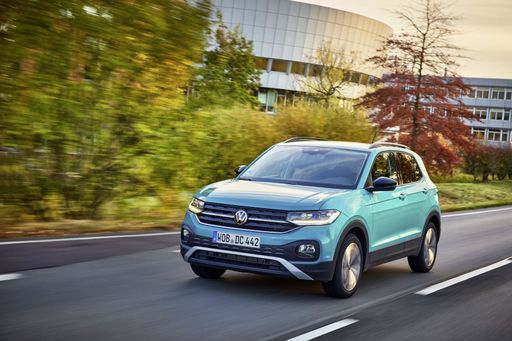
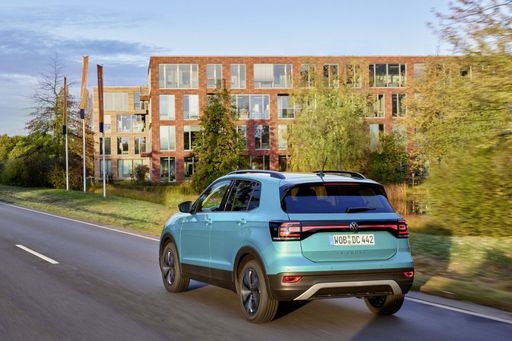
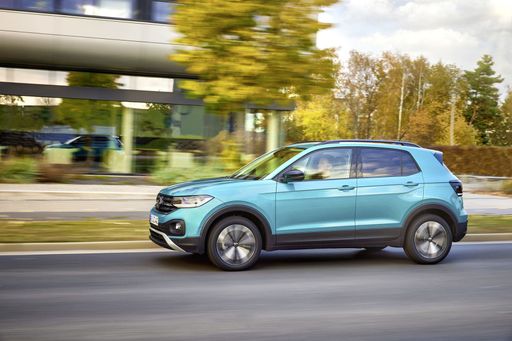
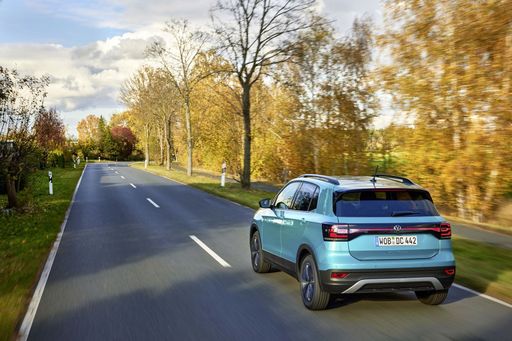
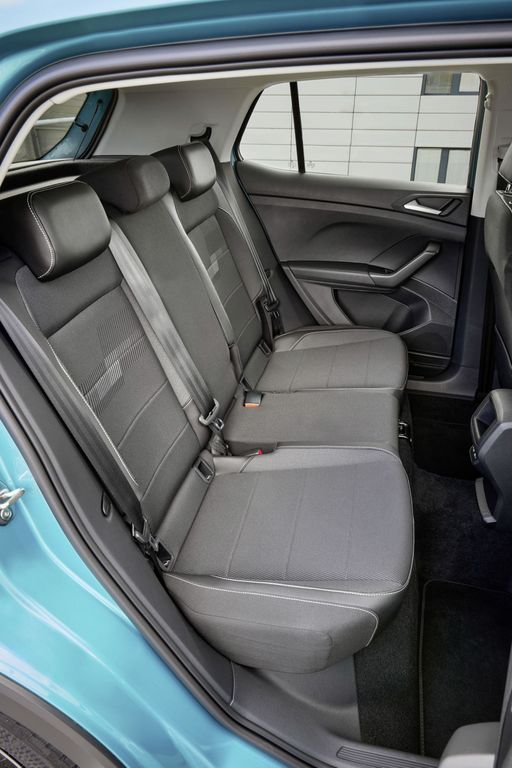
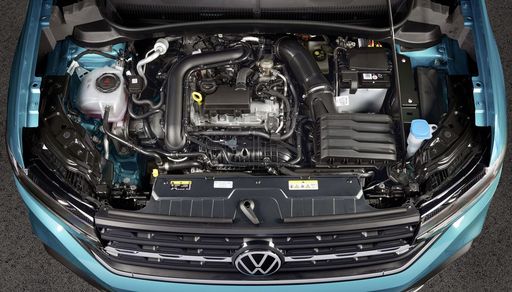
Costs and Consumption |
|
|---|---|
|
Price
28500 - 39900 £
|
Price
21400 - 32000 £
|
|
Consumption L/100km
5 - 8 L
|
Consumption L/100km
5.4 - 6 L
|
|
Consumption kWh/100km
-
|
Consumption kWh/100km
-
|
|
Electric Range
-
|
Electric Range
-
|
|
Battery Capacity
-
|
Battery Capacity
-
|
|
co2
120 - 183 g/km
|
co2
124 - 136 g/km
|
|
Fuel tank capacity
52 L
|
Fuel tank capacity
-
|
Dimensions and Body |
|
|---|---|
|
Body Type
Estate
|
Body Type
SUV
|
|
Seats
5
|
Seats
5
|
|
Doors
5
|
Doors
-
|
|
Curb weight
1413 - 1563 kg
|
Curb weight
1267 - 1338 kg
|
|
Trunk capacity
608 - 635 L
|
Trunk capacity
455 L
|
|
Length
4672 - 4693 mm
|
Length
-
|
|
Width
1825 - 1844 mm
|
Width
1784 mm
|
|
Height
1459 - 1504 mm
|
Height
-
|
|
Max trunk capacity
1653 L
|
Max trunk capacity
-
|
|
Payload
523 - 557 kg
|
Payload
463 - 480 kg
|
Engine and Performance |
|
|---|---|
|
Engine Type
Petrol MHEV, Diesel, Petrol
|
Engine Type
Petrol
|
|
Transmission
Manuel, Automatic
|
Transmission
Manuel, Automatic
|
|
Transmission Detail
Manual Gearbox, Dual-Clutch Automatic, Automatic Gearbox
|
Transmission Detail
Manual Gearbox, Dual-Clutch Automatic
|
|
Drive Type
Front-Wheel Drive
|
Drive Type
Front-Wheel Drive
|
|
Power HP
115 - 280 HP
|
Power HP
95 - 150 HP
|
|
Acceleration 0-100km/h
5.8 - 12.1 s
|
Acceleration 0-100km/h
8.4 - 11.3 s
|
|
Max Speed
184 - 250 km/h
|
Max Speed
-
|
|
Torque
170 - 420 Nm
|
Torque
175 - 250 Nm
|
|
Number of Cylinders
3 - 4
|
Number of Cylinders
3 - 4
|
|
Power kW
85 - 206 kW
|
Power kW
70 - 110 kW
|
|
Engine capacity
999 - 2261 cm3
|
Engine capacity
999 - 1498 cm3
|
General |
|
|---|---|
|
Model Year
2023 - 2024
|
Model Year
2024 - 2025
|
|
CO2 Efficiency Class
D, G
|
CO2 Efficiency Class
D, E
|
|
Brand
Ford
|
Brand
VW
|
What drive types are available for the Ford Focus Turnier?
Available configurations include Front-Wheel Drive.




